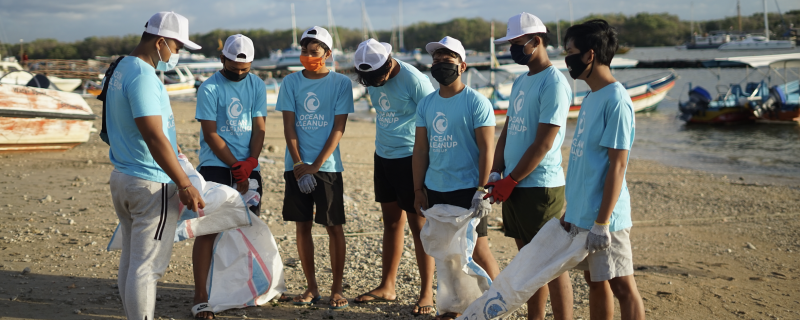

Applying to study in the UK can be tricky and confusing when doing things on your own. Take all of the stress out of the process by using Across the Pond’s free expertise and guidance. To help you on your way here are some things to be aware of:
APPLICATION DEADLINES FOR ADMISSION TO UK UNIVERSITIES
In the UK, admissions are mainly on a rolling basis – meaning it is "first come, first served" until the programme is filled. We therefore recommend that you apply as early as you can, and preferably before Christmas if you want to start your studies the following autumn. Exceptions: Medicine, Dentistry and Veterinary Sciences as well as all courses at the University of Oxford and the University of Cambridge, and also selected courses at master's level. Read more about the time of year you should apply to have the greatest chance of being granted admission.
HOW TO CHOOSE WHAT TO STUDY AND WHICH UNIVERSITY
Choosing what to study and which university to go to can be a very difficult process, especially when you may not be able to go and visit to find out which option you like best. Our advisors regularly visit the universities and help hundreds of students apply to a wide range of subjects every single year. They will be able to help you determine which universities and courses are best for you based on your academic background and the universities' minimum requirements, as well as your wishes and needs for what you would like your study experience to look like and cost.
HOW TO APPLY TO STUDY IN THE UK
We make it very easy for you! We have our own application form where you fill in your information and upload your application documents. We check that everything has been entered correctly before the application is submitted and that way you do not have to worry that you have made any mistakes that may result in you not being accepted.
WHAT DO YOU NEED TO APPLY FOR STUDIES IN THE UK?
To apply for studies at UK universities you need:
- One academic letter of recommendation if you are applying for undergraduate studies, and often two if you are applying for Master’s degree programmes. We have advice and tips that you can give to the person who will be writing this for you, so that together we ensure that they include all the information the UK universities are looking for. For postgraduate applicants you may also be required to submit your CV. Please note that how to write a CV for UK universities may differ from how they are expected to be written in your home country.
- Preliminary grades or final diploma (final diploma will be sent as soon as you have received it).
- Personal Statement. It is very important that it is you who has written your personal statement, but we will help you with what is important to include (or not include!) based on what and where you are hoping to study, in addition to proofreading it for you. This is a very important part of the application and whether or not you get in may be decided based on this statement. Some universities and courses have additional requirements and expectations in terms of what they want to see here and it is very important that you adhere to these indications. That's why we spend a lot of time making your personal statement as good as it can be.
- Note: Some courses will also require an audition, portfolio and other admissions tests.
DOES IT COST ANYTHING TO APPLY TO UK UNIVERSITIES?
When applying for undergraduate programmes, an application fee is required which is paid to the admissions service. In addition, some universities charge an application fee for some of the Master’s programmes they offer. These application fees are payable directly to the University or the University and Colleges Admissions Service and not to us. We will never ask for any payment or card information from you and all help from us is free of charge.
Some universities will require a deposit to secure your study place after you have been granted admission, this will later be deducted from the tuition fee. After you have been granted admission and your place has been confirmed, you will have to pay a fee to apply for a student visa in order to access healthcare in the UK during your studies. If you wish to live in the universities’ student housing you must apply to be allocated a room before the housing application deadline and once this has been processed you are often required to pay deposit to secure the accommodation. When you eventually enrol in the university, you will pay the tuition fee. Prices in the UK vary greatly and if you have any questions about the cost of studying in the UK, please get in touch. We are happy to help you find affordable options!
HOW DOES ACROSS THE POND HELP THROUGH THE APPLICATION PROCESS?
We will walk you through each step of the application process and help you with everything you need to consider before deciding whether or not you want to apply to study in the UK. If you choose to complete an application we will help you with absolutely everything from start to finish.
We are here to help you whether you have questions related to studying in the UK or want more information about selected universities or courses. Contact us whether you just want more information or if you are ready to get started with your application!

Applying to study in the UK can be tricky and confusing when doing things on your own. Take all of the stress out of the process by using Across the Pond’s free expertise and guidance. To help you on your way here are some things to be aware of:
APPLICATION DEADLINES FOR ADMISSION TO UK UNIVERSITIES
In the UK, admissions are mainly on a rolling basis – meaning it is "first come, first served" until the programme is filled. We therefore recommend that you apply as early as you can, and preferably before Christmas if you want to start your studies the following autumn. Exceptions: Medicine, Dentistry and Veterinary Sciences as well as all courses at the University of Oxford and the University of Cambridge, and also selected courses at master's level. Read more about the time of year you should apply to have the greatest chance of being granted admission.
HOW TO CHOOSE WHAT TO STUDY AND WHICH UNIVERSITY
Choosing what to study and which university to go to can be a very difficult process, especially when you may not be able to go and visit to find out which option you like best. Our advisors regularly visit the universities and help hundreds of students apply to a wide range of subjects every single year. They will be able to help you determine which universities and courses are best for you based on your academic background and the universities' minimum requirements, as well as your wishes and needs for what you would like your study experience to look like and cost.
HOW TO APPLY TO STUDY IN THE UK
We make it very easy for you! We have our own application form where you fill in your information and upload your application documents. We check that everything has been entered correctly before the application is submitted and that way you do not have to worry that you have made any mistakes that may result in you not being accepted.
WHAT DO YOU NEED TO APPLY FOR STUDIES IN THE UK?
To apply for studies at UK universities you need:
- One academic letter of recommendation if you are applying for undergraduate studies, and often two if you are applying for Master’s degree programmes. We have advice and tips that you can give to the person who will be writing this for you, so that together we ensure that they include all the information the UK universities are looking for. For postgraduate applicants you may also be required to submit your CV. Please note that how to write a CV for UK universities may differ from how they are expected to be written in your home country.
- Preliminary grades or final diploma (final diploma will be sent as soon as you have received it).
- Personal Statement. It is very important that it is you who has written your personal statement, but we will help you with what is important to include (or not include!) based on what and where you are hoping to study, in addition to proofreading it for you. This is a very important part of the application and whether or not you get in may be decided based on this statement. Some universities and courses have additional requirements and expectations in terms of what they want to see here and it is very important that you adhere to these indications. That's why we spend a lot of time making your personal statement as good as it can be.
- Note: Some courses will also require an audition, portfolio and other admissions tests.
DOES IT COST ANYTHING TO APPLY TO UK UNIVERSITIES?
When applying for undergraduate programmes, an application fee is required which is paid to the admissions service. In addition, some universities charge an application fee for some of the Master’s programmes they offer. These application fees are payable directly to the University or the University and Colleges Admissions Service and not to us. We will never ask for any payment or card information from you and all help from us is free of charge.
Some universities will require a deposit to secure your study place after you have been granted admission, this will later be deducted from the tuition fee. After you have been granted admission and your place has been confirmed, you will have to pay a fee to apply for a student visa in order to access healthcare in the UK during your studies. If you wish to live in the universities’ student housing you must apply to be allocated a room before the housing application deadline and once this has been processed you are often required to pay deposit to secure the accommodation. When you eventually enrol in the university, you will pay the tuition fee. Prices in the UK vary greatly and if you have any questions about the cost of studying in the UK, please get in touch. We are happy to help you find affordable options!
HOW DOES ACROSS THE POND HELP THROUGH THE APPLICATION PROCESS?
We will walk you through each step of the application process and help you with everything you need to consider before deciding whether or not you want to apply to study in the UK. If you choose to complete an application we will help you with absolutely everything from start to finish.
We are here to help you whether you have questions related to studying in the UK or want more information about selected universities or courses. Contact us whether you just want more information or if you are ready to get started with your application!

Applying to study in the UK can be tricky and confusing when doing things on your own. Take all of the stress out of the process by using Across the Pond’s free expertise and guidance. To help you on your way here are some things to be aware of:
APPLICATION DEADLINES FOR ADMISSION TO UK UNIVERSITIES
In the UK, admissions are mainly on a rolling basis – meaning it is "first come, first served" until the programme is filled. We therefore recommend that you apply as early as you can, and preferably before Christmas if you want to start your studies the following autumn. Exceptions: Medicine, Dentistry and Veterinary Sciences as well as all courses at the University of Oxford and the University of Cambridge, and also selected courses at master's level. Read more about the time of year you should apply to have the greatest chance of being granted admission.
HOW TO CHOOSE WHAT TO STUDY AND WHICH UNIVERSITY
Choosing what to study and which university to go to can be a very difficult process, especially when you may not be able to go and visit to find out which option you like best. Our advisors regularly visit the universities and help hundreds of students apply to a wide range of subjects every single year. They will be able to help you determine which universities and courses are best for you based on your academic background and the universities' minimum requirements, as well as your wishes and needs for what you would like your study experience to look like and cost.
HOW TO APPLY TO STUDY IN THE UK
We make it very easy for you! We have our own application form where you fill in your information and upload your application documents. We check that everything has been entered correctly before the application is submitted and that way you do not have to worry that you have made any mistakes that may result in you not being accepted.
WHAT DO YOU NEED TO APPLY FOR STUDIES IN THE UK?
To apply for studies at UK universities you need:
- One academic letter of recommendation if you are applying for undergraduate studies, and often two if you are applying for Master’s degree programmes. We have advice and tips that you can give to the person who will be writing this for you, so that together we ensure that they include all the information the UK universities are looking for. For postgraduate applicants you may also be required to submit your CV. Please note that how to write a CV for UK universities may differ from how they are expected to be written in your home country.
- Preliminary grades or final diploma (final diploma will be sent as soon as you have received it).
- Personal Statement. It is very important that it is you who has written your personal statement, but we will help you with what is important to include (or not include!) based on what and where you are hoping to study, in addition to proofreading it for you. This is a very important part of the application and whether or not you get in may be decided based on this statement. Some universities and courses have additional requirements and expectations in terms of what they want to see here and it is very important that you adhere to these indications. That's why we spend a lot of time making your personal statement as good as it can be.
- Note: Some courses will also require an audition, portfolio and other admissions tests.
DOES IT COST ANYTHING TO APPLY TO UK UNIVERSITIES?
When applying for undergraduate programmes, an application fee is required which is paid to the admissions service. In addition, some universities charge an application fee for some of the Master’s programmes they offer. These application fees are payable directly to the University or the University and Colleges Admissions Service and not to us. We will never ask for any payment or card information from you and all help from us is free of charge.
Some universities will require a deposit to secure your study place after you have been granted admission, this will later be deducted from the tuition fee. After you have been granted admission and your place has been confirmed, you will have to pay a fee to apply for a student visa in order to access healthcare in the UK during your studies. If you wish to live in the universities’ student housing you must apply to be allocated a room before the housing application deadline and once this has been processed you are often required to pay deposit to secure the accommodation. When you eventually enrol in the university, you will pay the tuition fee. Prices in the UK vary greatly and if you have any questions about the cost of studying in the UK, please get in touch. We are happy to help you find affordable options!
HOW DOES ACROSS THE POND HELP THROUGH THE APPLICATION PROCESS?
We will walk you through each step of the application process and help you with everything you need to consider before deciding whether or not you want to apply to study in the UK. If you choose to complete an application we will help you with absolutely everything from start to finish.
We are here to help you whether you have questions related to studying in the UK or want more information about selected universities or courses. Contact us whether you just want more information or if you are ready to get started with your application!

Applying to study in the UK can be tricky and confusing when doing things on your own. Take all of the stress out of the process by using Across the Pond’s free expertise and guidance. To help you on your way here are some things to be aware of:
APPLICATION DEADLINES FOR ADMISSION TO UK UNIVERSITIES
In the UK, admissions are mainly on a rolling basis – meaning it is "first come, first served" until the programme is filled. We therefore recommend that you apply as early as you can, and preferably before Christmas if you want to start your studies the following autumn. Exceptions: Medicine, Dentistry and Veterinary Sciences as well as all courses at the University of Oxford and the University of Cambridge, and also selected courses at master's level. Read more about the time of year you should apply to have the greatest chance of being granted admission.
HOW TO CHOOSE WHAT TO STUDY AND WHICH UNIVERSITY
Choosing what to study and which university to go to can be a very difficult process, especially when you may not be able to go and visit to find out which option you like best. Our advisors regularly visit the universities and help hundreds of students apply to a wide range of subjects every single year. They will be able to help you determine which universities and courses are best for you based on your academic background and the universities' minimum requirements, as well as your wishes and needs for what you would like your study experience to look like and cost.
HOW TO APPLY TO STUDY IN THE UK
We make it very easy for you! We have our own application form where you fill in your information and upload your application documents. We check that everything has been entered correctly before the application is submitted and that way you do not have to worry that you have made any mistakes that may result in you not being accepted.
WHAT DO YOU NEED TO APPLY FOR STUDIES IN THE UK?
To apply for studies at UK universities you need:
- One academic letter of recommendation if you are applying for undergraduate studies, and often two if you are applying for Master’s degree programmes. We have advice and tips that you can give to the person who will be writing this for you, so that together we ensure that they include all the information the UK universities are looking for. For postgraduate applicants you may also be required to submit your CV. Please note that how to write a CV for UK universities may differ from how they are expected to be written in your home country.
- Preliminary grades or final diploma (final diploma will be sent as soon as you have received it).
- Personal Statement. It is very important that it is you who has written your personal statement, but we will help you with what is important to include (or not include!) based on what and where you are hoping to study, in addition to proofreading it for you. This is a very important part of the application and whether or not you get in may be decided based on this statement. Some universities and courses have additional requirements and expectations in terms of what they want to see here and it is very important that you adhere to these indications. That's why we spend a lot of time making your personal statement as good as it can be.
- Note: Some courses will also require an audition, portfolio and other admissions tests.
DOES IT COST ANYTHING TO APPLY TO UK UNIVERSITIES?
When applying for undergraduate programmes, an application fee is required which is paid to the admissions service. In addition, some universities charge an application fee for some of the Master’s programmes they offer. These application fees are payable directly to the University or the University and Colleges Admissions Service and not to us. We will never ask for any payment or card information from you and all help from us is free of charge.
Some universities will require a deposit to secure your study place after you have been granted admission, this will later be deducted from the tuition fee. After you have been granted admission and your place has been confirmed, you will have to pay a fee to apply for a student visa in order to access healthcare in the UK during your studies. If you wish to live in the universities’ student housing you must apply to be allocated a room before the housing application deadline and once this has been processed you are often required to pay deposit to secure the accommodation. When you eventually enrol in the university, you will pay the tuition fee. Prices in the UK vary greatly and if you have any questions about the cost of studying in the UK, please get in touch. We are happy to help you find affordable options!
HOW DOES ACROSS THE POND HELP THROUGH THE APPLICATION PROCESS?
We will walk you through each step of the application process and help you with everything you need to consider before deciding whether or not you want to apply to study in the UK. If you choose to complete an application we will help you with absolutely everything from start to finish.
We are here to help you whether you have questions related to studying in the UK or want more information about selected universities or courses. Contact us whether you just want more information or if you are ready to get started with your application!

Applying to study in the UK can be tricky and confusing when doing things on your own. Take all of the stress out of the process by using Across the Pond’s free expertise and guidance. To help you on your way here are some things to be aware of:
APPLICATION DEADLINES FOR ADMISSION TO UK UNIVERSITIES
In the UK, admissions are mainly on a rolling basis – meaning it is "first come, first served" until the programme is filled. We therefore recommend that you apply as early as you can, and preferably before Christmas if you want to start your studies the following autumn. Exceptions: Medicine, Dentistry and Veterinary Sciences as well as all courses at the University of Oxford and the University of Cambridge, and also selected courses at master's level. Read more about the time of year you should apply to have the greatest chance of being granted admission.
HOW TO CHOOSE WHAT TO STUDY AND WHICH UNIVERSITY
Choosing what to study and which university to go to can be a very difficult process, especially when you may not be able to go and visit to find out which option you like best. Our advisors regularly visit the universities and help hundreds of students apply to a wide range of subjects every single year. They will be able to help you determine which universities and courses are best for you based on your academic background and the universities' minimum requirements, as well as your wishes and needs for what you would like your study experience to look like and cost.
HOW TO APPLY TO STUDY IN THE UK
We make it very easy for you! We have our own application form where you fill in your information and upload your application documents. We check that everything has been entered correctly before the application is submitted and that way you do not have to worry that you have made any mistakes that may result in you not being accepted.
WHAT DO YOU NEED TO APPLY FOR STUDIES IN THE UK?
To apply for studies at UK universities you need:
- One academic letter of recommendation if you are applying for undergraduate studies, and often two if you are applying for Master’s degree programmes. We have advice and tips that you can give to the person who will be writing this for you, so that together we ensure that they include all the information the UK universities are looking for. For postgraduate applicants you may also be required to submit your CV. Please note that how to write a CV for UK universities may differ from how they are expected to be written in your home country.
- Preliminary grades or final diploma (final diploma will be sent as soon as you have received it).
- Personal Statement. It is very important that it is you who has written your personal statement, but we will help you with what is important to include (or not include!) based on what and where you are hoping to study, in addition to proofreading it for you. This is a very important part of the application and whether or not you get in may be decided based on this statement. Some universities and courses have additional requirements and expectations in terms of what they want to see here and it is very important that you adhere to these indications. That's why we spend a lot of time making your personal statement as good as it can be.
- Note: Some courses will also require an audition, portfolio and other admissions tests.
DOES IT COST ANYTHING TO APPLY TO UK UNIVERSITIES?
When applying for undergraduate programmes, an application fee is required which is paid to the admissions service. In addition, some universities charge an application fee for some of the Master’s programmes they offer. These application fees are payable directly to the University or the University and Colleges Admissions Service and not to us. We will never ask for any payment or card information from you and all help from us is free of charge.
Some universities will require a deposit to secure your study place after you have been granted admission, this will later be deducted from the tuition fee. After you have been granted admission and your place has been confirmed, you will have to pay a fee to apply for a student visa in order to access healthcare in the UK during your studies. If you wish to live in the universities’ student housing you must apply to be allocated a room before the housing application deadline and once this has been processed you are often required to pay deposit to secure the accommodation. When you eventually enrol in the university, you will pay the tuition fee. Prices in the UK vary greatly and if you have any questions about the cost of studying in the UK, please get in touch. We are happy to help you find affordable options!
HOW DOES ACROSS THE POND HELP THROUGH THE APPLICATION PROCESS?
We will walk you through each step of the application process and help you with everything you need to consider before deciding whether or not you want to apply to study in the UK. If you choose to complete an application we will help you with absolutely everything from start to finish.
We are here to help you whether you have questions related to studying in the UK or want more information about selected universities or courses. Contact us whether you just want more information or if you are ready to get started with your application!

Applying to study in the UK can be tricky and confusing when doing things on your own. Take all of the stress out of the process by using Across the Pond’s free expertise and guidance. To help you on your way here are some things to be aware of:
APPLICATION DEADLINES FOR ADMISSION TO UK UNIVERSITIES
In the UK, admissions are mainly on a rolling basis – meaning it is "first come, first served" until the programme is filled. We therefore recommend that you apply as early as you can, and preferably before Christmas if you want to start your studies the following autumn. Exceptions: Medicine, Dentistry and Veterinary Sciences as well as all courses at the University of Oxford and the University of Cambridge, and also selected courses at master's level. Read more about the time of year you should apply to have the greatest chance of being granted admission.
HOW TO CHOOSE WHAT TO STUDY AND WHICH UNIVERSITY
Choosing what to study and which university to go to can be a very difficult process, especially when you may not be able to go and visit to find out which option you like best. Our advisors regularly visit the universities and help hundreds of students apply to a wide range of subjects every single year. They will be able to help you determine which universities and courses are best for you based on your academic background and the universities' minimum requirements, as well as your wishes and needs for what you would like your study experience to look like and cost.
HOW TO APPLY TO STUDY IN THE UK
We make it very easy for you! We have our own application form where you fill in your information and upload your application documents. We check that everything has been entered correctly before the application is submitted and that way you do not have to worry that you have made any mistakes that may result in you not being accepted.
WHAT DO YOU NEED TO APPLY FOR STUDIES IN THE UK?
To apply for studies at UK universities you need:
- One academic letter of recommendation if you are applying for undergraduate studies, and often two if you are applying for Master’s degree programmes. We have advice and tips that you can give to the person who will be writing this for you, so that together we ensure that they include all the information the UK universities are looking for. For postgraduate applicants you may also be required to submit your CV. Please note that how to write a CV for UK universities may differ from how they are expected to be written in your home country.
- Preliminary grades or final diploma (final diploma will be sent as soon as you have received it).
- Personal Statement. It is very important that it is you who has written your personal statement, but we will help you with what is important to include (or not include!) based on what and where you are hoping to study, in addition to proofreading it for you. This is a very important part of the application and whether or not you get in may be decided based on this statement. Some universities and courses have additional requirements and expectations in terms of what they want to see here and it is very important that you adhere to these indications. That's why we spend a lot of time making your personal statement as good as it can be.
- Note: Some courses will also require an audition, portfolio and other admissions tests.
DOES IT COST ANYTHING TO APPLY TO UK UNIVERSITIES?
When applying for undergraduate programmes, an application fee is required which is paid to the admissions service. In addition, some universities charge an application fee for some of the Master’s programmes they offer. These application fees are payable directly to the University or the University and Colleges Admissions Service and not to us. We will never ask for any payment or card information from you and all help from us is free of charge.
Some universities will require a deposit to secure your study place after you have been granted admission, this will later be deducted from the tuition fee. After you have been granted admission and your place has been confirmed, you will have to pay a fee to apply for a student visa in order to access healthcare in the UK during your studies. If you wish to live in the universities’ student housing you must apply to be allocated a room before the housing application deadline and once this has been processed you are often required to pay deposit to secure the accommodation. When you eventually enrol in the university, you will pay the tuition fee. Prices in the UK vary greatly and if you have any questions about the cost of studying in the UK, please get in touch. We are happy to help you find affordable options!
HOW DOES ACROSS THE POND HELP THROUGH THE APPLICATION PROCESS?
We will walk you through each step of the application process and help you with everything you need to consider before deciding whether or not you want to apply to study in the UK. If you choose to complete an application we will help you with absolutely everything from start to finish.
We are here to help you whether you have questions related to studying in the UK or want more information about selected universities or courses. Contact us whether you just want more information or if you are ready to get started with your application!

A great experience and I would recommend studying abroad

Hi there! My name is Yenny, and I am a former student of an MA in audio-visual translation and literature. My experience as a Colombian student in a UK university has been wonderful. I was fortunate to study at the University of Essex. I chose this university because the translation program was in line with my professional goals and personal values.
At the University of Essex lecturers are great support, and flatmates, as well as classmates, are super friendly and very welcoming regardless of your nationality, gender, sexual orientation and colour. The lecturers promote autonomous work, which enhances students’ research skills. I valued this dynamic not only because it is new, but also because it allowed me to manage my time according to my needs. Regards my master’s, I can tell you that it was ‘hands-on’. We were learning theory but at the same time applying what we were taught in the previous lesson, which allowed me and my classmates to earn a one-year experience as translators. Most of the lectures were in English and some of them were in Spanish. It was a little bit challenging to get used to the British accent, but after a while, I got the hang of it. I also had the opportunity to learn to understand several accents from international students.
A normal day at the university can start with a Zoom call or a lecture in one of the university’s classrooms. You can find a little market in one of the university’s squares where you can have a coffee or any international dish. The University is widely diverse and allows different student groups to create and participate in several events that are not only fun but helps you to get to know different communities. So, on a regular day, you can celebrate Día de Los Muertos or celebrate Holly with the rest of the international students. Then you get to have lunch or dinner in one of the university’s restaurants and enjoy a walk next to the lake. Finally, you can go to your accommodation and call it a day.
My experience living in one of the students’ accommodations in Colchester was one of the best. My accommodation had a great kitchen, a private bathroom, a peaceful environment, friendly flatmates and easy access to public transportation. There were several buses to go to town from the university’s accommodations. On the other hand, Colchester was a great town even though shops closed early, which is very different from Colombia. You can find almost any type of shop in town and the people are quite friendly and helpful. Another difference that I found between my country to Colchester is that Pubs sell food that is good and quite cheap. In Colombia, we don’t have Pubs per se, but we do have bars that sell crisps and burgers. During my spare time, I used to go to Colchester’s park, called ‘Castle park’, which is a peaceful place to read, listen to music, sleep on the grass and have a picnic.
Finally, before coming to the UK, I wish people had warned me about the change of seasons. It was very difficult to keep up with the changes of it. Therefore, the climate app is my best friend now. Another thing I wish people would have warned me about the UK before coming was that in the UK, most of the proceedings are done online. You need to have your BRP, Passport and any documentation that can help you with online forms.
Overall, it is a great experience and I would recommend studying abroad to anyone reading this post.
- Yenny

Applying to study in the UK can be tricky and confusing when doing things on your own. Take all of the stress out of the process by using Across the Pond’s free expertise and guidance. To help you on your way here are some things to be aware of:
APPLICATION DEADLINES FOR ADMISSION TO UK UNIVERSITIES
In the UK, admissions are mainly on a rolling basis – meaning it is "first come, first served" until the programme is filled. We therefore recommend that you apply as early as you can, and preferably before Christmas if you want to start your studies the following autumn. Exceptions: Medicine, Dentistry and Veterinary Sciences as well as all courses at the University of Oxford and the University of Cambridge, and also selected courses at master's level. Read more about the time of year you should apply to have the greatest chance of being granted admission.
HOW TO CHOOSE WHAT TO STUDY AND WHICH UNIVERSITY
Choosing what to study and which university to go to can be a very difficult process, especially when you may not be able to go and visit to find out which option you like best. Our advisors regularly visit the universities and help hundreds of students apply to a wide range of subjects every single year. They will be able to help you determine which universities and courses are best for you based on your academic background and the universities' minimum requirements, as well as your wishes and needs for what you would like your study experience to look like and cost.
HOW TO APPLY TO STUDY IN THE UK
We make it very easy for you! We have our own application form where you fill in your information and upload your application documents. We check that everything has been entered correctly before the application is submitted and that way you do not have to worry that you have made any mistakes that may result in you not being accepted.
WHAT DO YOU NEED TO APPLY FOR STUDIES IN THE UK?
To apply for studies at UK universities you need:
- One academic letter of recommendation if you are applying for undergraduate studies, and often two if you are applying for Master’s degree programmes. We have advice and tips that you can give to the person who will be writing this for you, so that together we ensure that they include all the information the UK universities are looking for. For postgraduate applicants you may also be required to submit your CV. Please note that how to write a CV for UK universities may differ from how they are expected to be written in your home country.
- Preliminary grades or final diploma (final diploma will be sent as soon as you have received it).
- Personal Statement. It is very important that it is you who has written your personal statement, but we will help you with what is important to include (or not include!) based on what and where you are hoping to study, in addition to proofreading it for you. This is a very important part of the application and whether or not you get in may be decided based on this statement. Some universities and courses have additional requirements and expectations in terms of what they want to see here and it is very important that you adhere to these indications. That's why we spend a lot of time making your personal statement as good as it can be.
- Note: Some courses will also require an audition, portfolio and other admissions tests.
DOES IT COST ANYTHING TO APPLY TO UK UNIVERSITIES?
When applying for undergraduate programmes, an application fee is required which is paid to the admissions service. In addition, some universities charge an application fee for some of the Master’s programmes they offer. These application fees are payable directly to the University or the University and Colleges Admissions Service and not to us. We will never ask for any payment or card information from you and all help from us is free of charge.
Some universities will require a deposit to secure your study place after you have been granted admission, this will later be deducted from the tuition fee. After you have been granted admission and your place has been confirmed, you will have to pay a fee to apply for a student visa in order to access healthcare in the UK during your studies. If you wish to live in the universities’ student housing you must apply to be allocated a room before the housing application deadline and once this has been processed you are often required to pay deposit to secure the accommodation. When you eventually enrol in the university, you will pay the tuition fee. Prices in the UK vary greatly and if you have any questions about the cost of studying in the UK, please get in touch. We are happy to help you find affordable options!
HOW DOES ACROSS THE POND HELP THROUGH THE APPLICATION PROCESS?
We will walk you through each step of the application process and help you with everything you need to consider before deciding whether or not you want to apply to study in the UK. If you choose to complete an application we will help you with absolutely everything from start to finish.
We are here to help you whether you have questions related to studying in the UK or want more information about selected universities or courses. Contact us whether you just want more information or if you are ready to get started with your application!

Applying to study in the UK can be tricky and confusing when doing things on your own. Take all of the stress out of the process by using Across the Pond’s free expertise and guidance. To help you on your way here are some things to be aware of:
APPLICATION DEADLINES FOR ADMISSION TO UK UNIVERSITIES
In the UK, admissions are mainly on a rolling basis – meaning it is "first come, first served" until the programme is filled. We therefore recommend that you apply as early as you can, and preferably before Christmas if you want to start your studies the following autumn. Exceptions: Medicine, Dentistry and Veterinary Sciences as well as all courses at the University of Oxford and the University of Cambridge, and also selected courses at master's level. Read more about the time of year you should apply to have the greatest chance of being granted admission.
HOW TO CHOOSE WHAT TO STUDY AND WHICH UNIVERSITY
Choosing what to study and which university to go to can be a very difficult process, especially when you may not be able to go and visit to find out which option you like best. Our advisors regularly visit the universities and help hundreds of students apply to a wide range of subjects every single year. They will be able to help you determine which universities and courses are best for you based on your academic background and the universities' minimum requirements, as well as your wishes and needs for what you would like your study experience to look like and cost.
HOW TO APPLY TO STUDY IN THE UK
We make it very easy for you! We have our own application form where you fill in your information and upload your application documents. We check that everything has been entered correctly before the application is submitted and that way you do not have to worry that you have made any mistakes that may result in you not being accepted.
WHAT DO YOU NEED TO APPLY FOR STUDIES IN THE UK?
To apply for studies at UK universities you need:
- One academic letter of recommendation if you are applying for undergraduate studies, and often two if you are applying for Master’s degree programmes. We have advice and tips that you can give to the person who will be writing this for you, so that together we ensure that they include all the information the UK universities are looking for. For postgraduate applicants you may also be required to submit your CV. Please note that how to write a CV for UK universities may differ from how they are expected to be written in your home country.
- Preliminary grades or final diploma (final diploma will be sent as soon as you have received it).
- Personal Statement. It is very important that it is you who has written your personal statement, but we will help you with what is important to include (or not include!) based on what and where you are hoping to study, in addition to proofreading it for you. This is a very important part of the application and whether or not you get in may be decided based on this statement. Some universities and courses have additional requirements and expectations in terms of what they want to see here and it is very important that you adhere to these indications. That's why we spend a lot of time making your personal statement as good as it can be.
- Note: Some courses will also require an audition, portfolio and other admissions tests.
DOES IT COST ANYTHING TO APPLY TO UK UNIVERSITIES?
When applying for undergraduate programmes, an application fee is required which is paid to the admissions service. In addition, some universities charge an application fee for some of the Master’s programmes they offer. These application fees are payable directly to the University or the University and Colleges Admissions Service and not to us. We will never ask for any payment or card information from you and all help from us is free of charge.
Some universities will require a deposit to secure your study place after you have been granted admission, this will later be deducted from the tuition fee. After you have been granted admission and your place has been confirmed, you will have to pay a fee to apply for a student visa in order to access healthcare in the UK during your studies. If you wish to live in the universities’ student housing you must apply to be allocated a room before the housing application deadline and once this has been processed you are often required to pay deposit to secure the accommodation. When you eventually enrol in the university, you will pay the tuition fee. Prices in the UK vary greatly and if you have any questions about the cost of studying in the UK, please get in touch. We are happy to help you find affordable options!
HOW DOES ACROSS THE POND HELP THROUGH THE APPLICATION PROCESS?
We will walk you through each step of the application process and help you with everything you need to consider before deciding whether or not you want to apply to study in the UK. If you choose to complete an application we will help you with absolutely everything from start to finish.
We are here to help you whether you have questions related to studying in the UK or want more information about selected universities or courses. Contact us whether you just want more information or if you are ready to get started with your application!

Applying to study in the UK can be tricky and confusing when doing things on your own. Take all of the stress out of the process by using Across the Pond’s free expertise and guidance. To help you on your way here are some things to be aware of:
APPLICATION DEADLINES FOR ADMISSION TO UK UNIVERSITIES
In the UK, admissions are mainly on a rolling basis – meaning it is "first come, first served" until the programme is filled. We therefore recommend that you apply as early as you can, and preferably before Christmas if you want to start your studies the following autumn. Exceptions: Medicine, Dentistry and Veterinary Sciences as well as all courses at the University of Oxford and the University of Cambridge, and also selected courses at master's level. Read more about the time of year you should apply to have the greatest chance of being granted admission.
HOW TO CHOOSE WHAT TO STUDY AND WHICH UNIVERSITY
Choosing what to study and which university to go to can be a very difficult process, especially when you may not be able to go and visit to find out which option you like best. Our advisors regularly visit the universities and help hundreds of students apply to a wide range of subjects every single year. They will be able to help you determine which universities and courses are best for you based on your academic background and the universities' minimum requirements, as well as your wishes and needs for what you would like your study experience to look like and cost.
HOW TO APPLY TO STUDY IN THE UK
We make it very easy for you! We have our own application form where you fill in your information and upload your application documents. We check that everything has been entered correctly before the application is submitted and that way you do not have to worry that you have made any mistakes that may result in you not being accepted.
WHAT DO YOU NEED TO APPLY FOR STUDIES IN THE UK?
To apply for studies at UK universities you need:
- One academic letter of recommendation if you are applying for undergraduate studies, and often two if you are applying for Master’s degree programmes. We have advice and tips that you can give to the person who will be writing this for you, so that together we ensure that they include all the information the UK universities are looking for. For postgraduate applicants you may also be required to submit your CV. Please note that how to write a CV for UK universities may differ from how they are expected to be written in your home country.
- Preliminary grades or final diploma (final diploma will be sent as soon as you have received it).
- Personal Statement. It is very important that it is you who has written your personal statement, but we will help you with what is important to include (or not include!) based on what and where you are hoping to study, in addition to proofreading it for you. This is a very important part of the application and whether or not you get in may be decided based on this statement. Some universities and courses have additional requirements and expectations in terms of what they want to see here and it is very important that you adhere to these indications. That's why we spend a lot of time making your personal statement as good as it can be.
- Note: Some courses will also require an audition, portfolio and other admissions tests.
DOES IT COST ANYTHING TO APPLY TO UK UNIVERSITIES?
When applying for undergraduate programmes, an application fee is required which is paid to the admissions service. In addition, some universities charge an application fee for some of the Master’s programmes they offer. These application fees are payable directly to the University or the University and Colleges Admissions Service and not to us. We will never ask for any payment or card information from you and all help from us is free of charge.
Some universities will require a deposit to secure your study place after you have been granted admission, this will later be deducted from the tuition fee. After you have been granted admission and your place has been confirmed, you will have to pay a fee to apply for a student visa in order to access healthcare in the UK during your studies. If you wish to live in the universities’ student housing you must apply to be allocated a room before the housing application deadline and once this has been processed you are often required to pay deposit to secure the accommodation. When you eventually enrol in the university, you will pay the tuition fee. Prices in the UK vary greatly and if you have any questions about the cost of studying in the UK, please get in touch. We are happy to help you find affordable options!
HOW DOES ACROSS THE POND HELP THROUGH THE APPLICATION PROCESS?
We will walk you through each step of the application process and help you with everything you need to consider before deciding whether or not you want to apply to study in the UK. If you choose to complete an application we will help you with absolutely everything from start to finish.
We are here to help you whether you have questions related to studying in the UK or want more information about selected universities or courses. Contact us whether you just want more information or if you are ready to get started with your application!